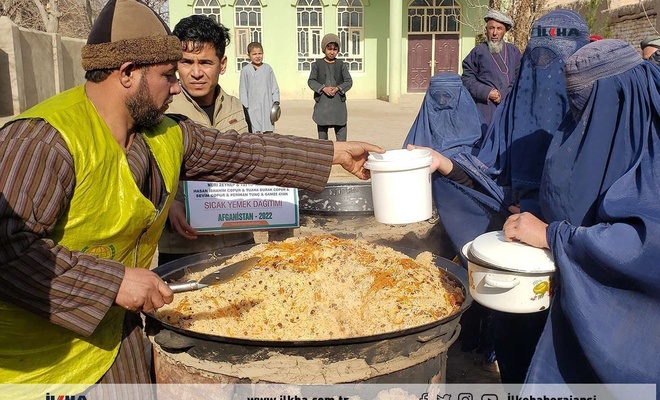WFP: More than 20 million people in Afghanistan do not have enough to eat
Although Millions of Afghans are on the brink of starvation, there are about $9.5 billion of Afghan funds from the country's central bank frozen in the United States.

 Google News'te Doğruhaber'e abone olun.
Google News'te Doğruhaber'e abone olun. Facing a plummeting economy, back-to-back drought seasons, soaring food prices, and a global pandemic, many Afghan families have turned to support from humanitarian aid organizations, particularly during the lean months prior to June planting season.
While the upcoming harvest is expected to bring some relief, many families have plunged into debt over the past several months, mortgaging land and other assets to buy food to bridge the gap.
According to the global standard for food insecurity (the IPC or Integrated Food Phase Classification), nearly 20 million people are facing food insecurity, with 6.6 million facing acute hunger.
“Support from UK Aid for desperate Afghans has been invaluable,” says Mary-Ellen McGroarty, WFP’s Country Director for Afghanistan. “Not only is Afghanistan dealing with a number of challenges within its borders, but the global food supply issues are worsening due to the Ukraine conflict and rising prices are squeezing relief efforts and creating an additional weight to people’s economic burden. Afghanistan’s economy is reeling from a multi-layered crisis, and we are so grateful to the UK for its role in helping people.”
“We are seeing season after season of loss,” says McGroarty. “This is something that stays with me and with all our staff working across the country. People have lost livelihoods; their sons and daughters have lost their childhoods. Girls are at risk of losing so many educational gains that were hard-won victories.”
She adds: “We need to nurture them, otherwise who will be the future midwives, teachers, and doctors? WFP is committed to supporting the people of Afghanistan in every way we know how—from emergency food and cash distribution to resilience efforts with local farmers, skills training for women to school feeding for children. Our donors are the true backbone to enabling our work to continue in the months ahead.”
Although more than half of Afghanistan’s 38 million population face imminent food shortages, the U.S. has frozen nearly $9.5 billion in assets belonging to the Afghan central bank and stopped shipments of cash to the nation.
The move aggravated the humanitarian crisis in the country, which had suffered from war for decades.
In April, UN human rights experts called on the Government of the United States to unblock the foreign assets of Da Afghanistan Bank of more than the US $7 billion to enable the unimpeded provision of humanitarian assistance to cover the basic needs of tens of millions of people in the country.
“We call on the US Government to take into serious consideration the growing humanitarian crisis in Afghanistan and to re-assess its decision to block the Da Afghanistan Bank’s foreign assets,” the experts said. (ILKHA)



















































